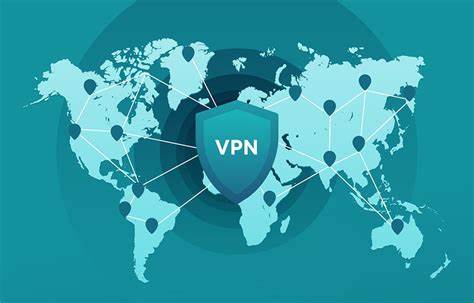In the realm of Virtual Private Networks (VPNs), various types exist, each catering to different needs and preferences. Let’s delve into the intricacies of these VPN variations to understand their unique features and functionalities.
Remote Access VPNs
Remote Access VPN, also known as client-based VPN, are designed to provide secure access to a private network for individual users or devices from remote locations. These VPNs create encrypted tunnels between the user’s device and the corporate network, allowing remote workers to access company resources securely over the internet.

Site-to-Site VPNs
Site-to-Site VPNs, also referred to as router-to-router VPN, are used to connect multiple networks or sites together over the internet, creating a secure network-to-network connection. These VPN establish encrypted tunnels between the routers or gateways of different locations, allowing seamless communication between distributed networks. Site-to-Site VPN are commonly employed by organizations with multiple branch offices or data centers that need to share resources and communicate securely across geographically dispersed locations.
Intranet-based VPNs
Intranet-based VPNs, also known as LAN-to-LAN VPN, are similar to Site-to-Site VPN but are specifically designed to connect different segments of a single organization’s internal network. These VPNs enable secure communication and data exchange between various departments. Offices, or divisions within the organization, enhancing collaboration and productivity. Intranet-based VPNs use encryption and authentication mechanisms to ensure that data transmitted between different segments of the internal network remains confidential and secure.
Extranet-based VPNs
Extranet-based VPNs extend the concept of Intranet-based VPN to include secure connections between an organization’s internal network. And external entities such as business partners, suppliers, or customers. These VPN allow authorized external users to access specific resources or services on the organization’s network. Facilitating collaboration and information sharing while maintaining strict security measures. Extranet-based VPN use authentication and access control mechanisms to ensure that only authorized users can access the shared resources. Protecting sensitive data from unauthorized access or tampering.
SSL VPNs
SSL VPN, or Secure Socket Layer VPN, are a type of VPN that operates at the application layer of the OSI (Open Systems Interconnection) model. Providing secure remote access to web-based applications and services.
SSL VPN use standard web browsers to establish encrypted connections between the user’s device and the VPN gateway. SSL VPN are commonly used by organizations to provide secure remote access to web-based applications such as email. Intranet portals, and file sharing services, without the need for complex client configurations or software installations.
Mobile VPNs
Tablets, and laptops that frequently connect to public Wi-Fi networks or cellular data networks. These VPN use specialized protocols and technologies to establish secure connections over unreliable or untrusted networks. Protecting sensitive data from interception or unauthorized access. Ensuring that sensitive information remains protected even when using public or unsecured networks.
Conclusion
In conclusion, the world of VPN encompasses a diverse array of technologies and solutions. Each tailored to specific use cases and requirements. Whether you’re a remote worker needing secure access to corporate resources, a multinational organization connecting branch offices across the globe. Or a mobile user seeking privacy and security on the go, there’s a VPN solution available to meet your needs. By understanding the different types of VPN and their unique features, you can choose the right VPN solution to safeguard your online privacy. Enhance security, and access resources securely from anywhere in the world.
